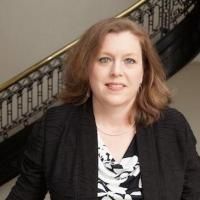Civil society and civic engagement: Towards a multi-level theory of policy feedbacks
Date
2010-09-01
Authors
Journal Title
Journal ISSN
Volume Title
Repository Usage Stats
views
downloads
Citation Stats
Attention Stats
Abstract
Scholars are increasingly recognizing that design of a public policy influences the scope and nature of political engagement around that policy. Such 'policy feedback' models typically focus on organizational engagement (such as interest group lobbying) or on individual engagement (such as joining associations), with each formof participation treated as a discrete phenomenon. Here, drawing on US laws and regulations surrounding civil society and civil rights, I develop a multi-level model of policy feedbacks that integrates organizational and individual participation. Specifically, I suggest that laws and administrative rules operate on voluntary organizations to structure the resources, capacities, strategies, and ideals of individuals. To develop the model, I draw on policy feedback mechanisms identified by Suzanne Mettler and Joe Soss to derive empirically grounded hypotheses about feedback effects. I suggest that public policy (1) structures the political orientation of civil society by stimulating the development of certain types of groups and strategies, while constraining others, with implications for the range of participatory opportunities afforded to individuals; (2) alters the capacity of civil society groups, including resources and political learning, to channel civic engagement towards non-political strategies of social improvement; (3) affects the framing of strategies in a way that might influence mass attitudes about the optimal form that civic engagement should take; (4) defines civic membership; and (5) forges political community in ways that encourage rights-based advocacy over communitarian notions of public service. I conclude with thoughts on how the theories and hypotheses put forth in this conceptual article might be evaluated empirically and incorporated in practice. © 2010 Taylor & Francis.
Type
Department
Description
Provenance
Subjects
Citation
Permalink
Published Version (Please cite this version)
Publication Info
Goss, KA (2010). Civil society and civic engagement: Towards a multi-level theory of policy feedbacks. Journal of Civil Society, 6(2). pp. 119–143. 10.1080/17448689.2010.506370 Retrieved from https://hdl.handle.net/10161/25932.
This is constructed from limited available data and may be imprecise. To cite this article, please review & use the official citation provided by the journal.
Collections
Scholars@Duke

Kristin Anne Goss
Professor Goss focuses on why people do (or don't) participate in political life and how their engagement affects public policymaking. Her current research projects focus on the role of philanthropic billionaires in policy debates and on the evolution of gun-related advocacy over the past decade. Her recent articles and books are here. If you want a quick summary, here are some podcasts, op-eds, and other media offerings.
Professor Goss directs the "Duke in DC" program, which provides select undergraduates with an immersive experience combining work experience and policy-oriented seminars. In 2017, she was inducted into the Bass Society of Fellows. See more about Professor Goss at kristingoss.com.
Professor Goss has written or co-produced three books on gun politics and policy: The Gun Debate: What Everyone Needs to Know, with Philip J. Cook (Oxford University Press, 2020; 1st ed 2014); Gun Studies: Interdisciplinary Approaches to Politics, Policy, and Practice, co-edited with Jennifer Carlson and Harel Shapira (Routledge, 2018); and Disarmed: The Missing Movement for Gun Control in America (Princeton University Press, 2006, 2009). The latter book is based on her doctoral study, which won the American Political Science Association’s 2003 Harold D. Lasswell Award for the nation’s best dissertation in policy studies.
Professor Goss has also written widely on gender and politics. She is the author of The Paradox of Gender Equality: How American Women's Groups Gained and Lost Their Public Voice (University of Michigan Press, 2020 1st ed., 2013). The book documents and explains the surprising rise -- and even more surprising fall -- of American women's groups on the national stage. Systematically examining these groups' issue agendas over the last century, the book argues that public policy has profoundly shaped the nature and magnitude of women's collective voice in important national debates.
Professor Goss has published articles in journals including Perspectives on Politics, Policy Studies Journal, PS: Political Science and Politics, Interest Groups & Advocacy, Law & Contemporary Problems, Social Science Quarterly, American Journal of Public Health, American Journal of Orthopsychiatry, Politics & Gender, Women & Politics, Nonprofit and Voluntary Sector Quarterly, and the Fordham Law Review. She has also published chapters in major volumes on women's activism and interest groups. She is author of Better Together, the report of the Saguaro Seminar: Civic Engagement in America.
Professor Goss also is active in the Triangle Area chapter of the Scholars Strategy Network, which amplifies the voice of university-based academics in public policy debates.
At Duke, she is affiliated with the Center for Strategic Philanthropy and Civil Society, the Center for the Study of Philanthropy and Voluntarism, the Hart Leadership Program, and the Duke Center for Firearms Law.
Before her appointment at Duke, Professor Goss taught American politics courses at Georgetown University and served as a consultant for the Corporation for National and Community Service. Her Duke master’s thesis explored the challenges facing voluntary associations seeking to stop the epidemic of gun violence in Washington, D.C., in the 1990s.
Professor Goss grew up near Denver, where she developed a passion for figure skating and animal welfare. Before entering academe, she was a Washington-based journalist for six years covering non-profit organizations and foundations for The Chronicle of Philanthropy.
Unless otherwise indicated, scholarly articles published by Duke faculty members are made available here with a CC-BY-NC (Creative Commons Attribution Non-Commercial) license, as enabled by the Duke Open Access Policy. If you wish to use the materials in ways not already permitted under CC-BY-NC, please consult the copyright owner. Other materials are made available here through the author’s grant of a non-exclusive license to make their work openly accessible.
